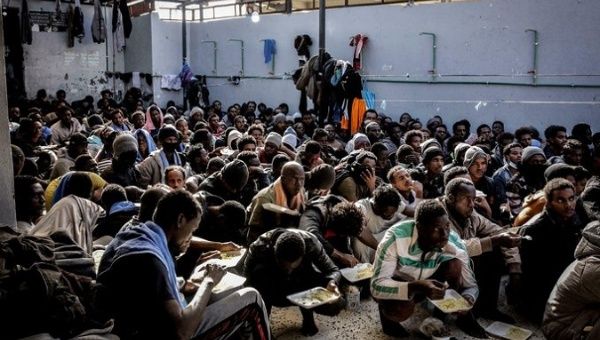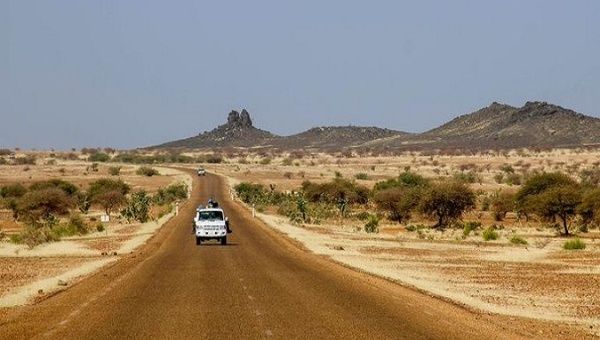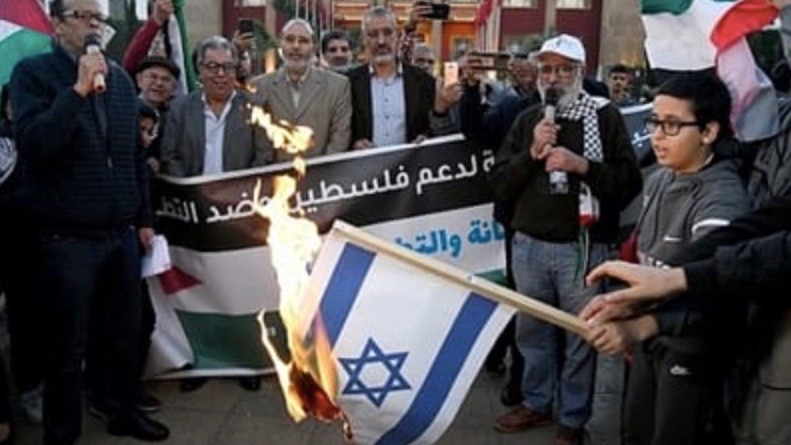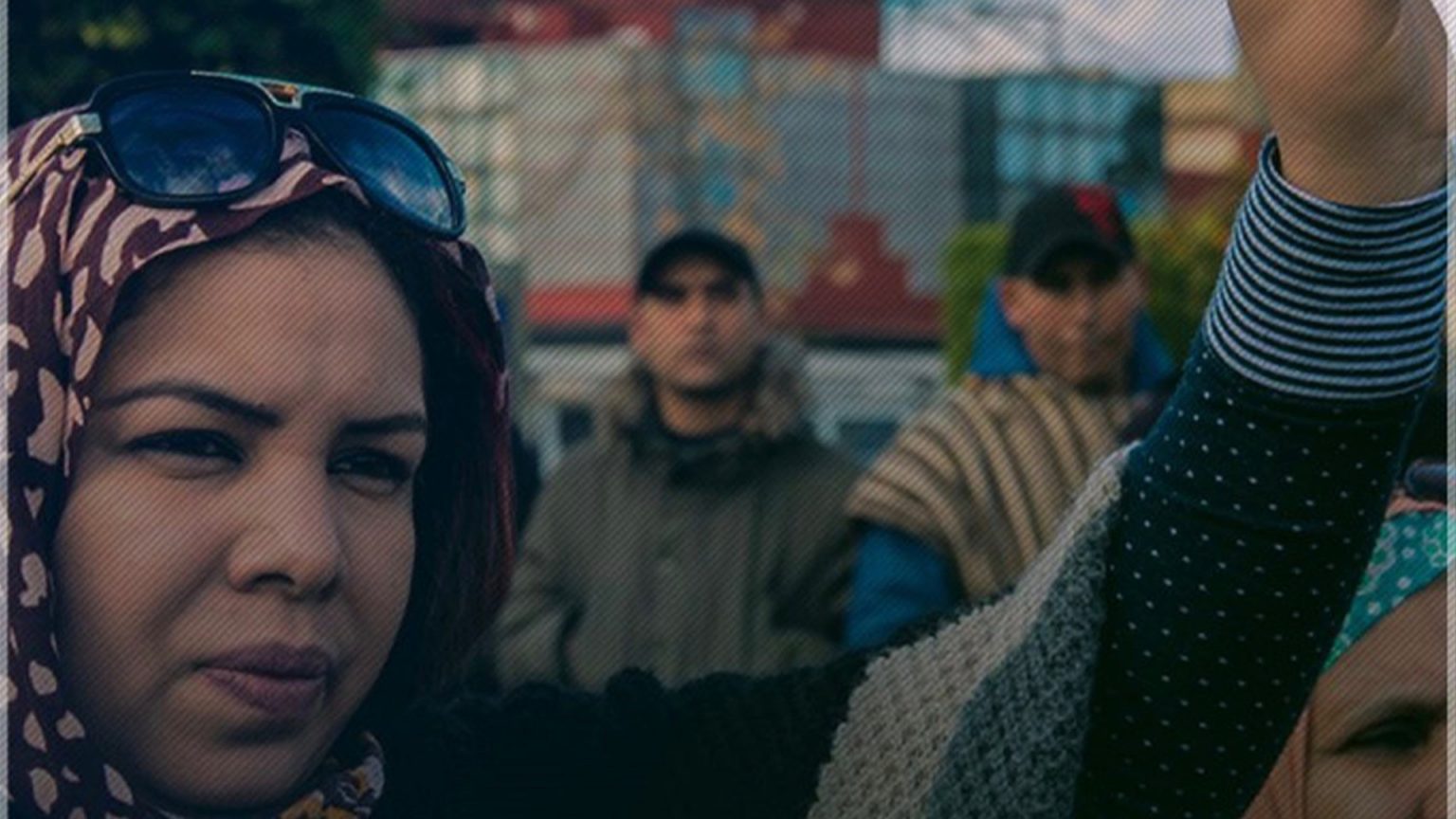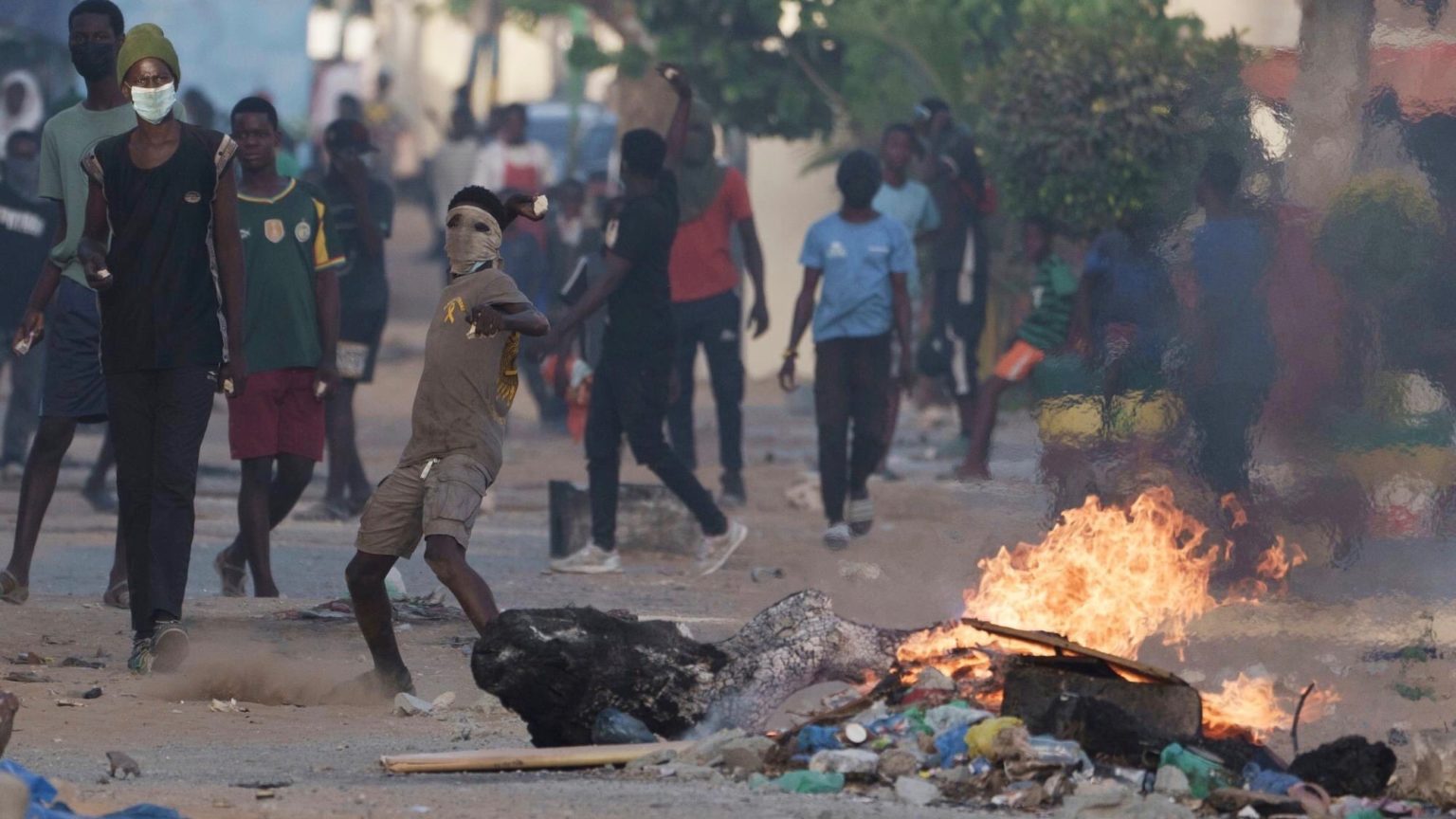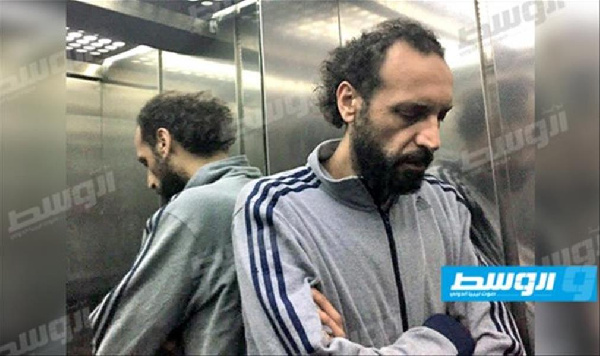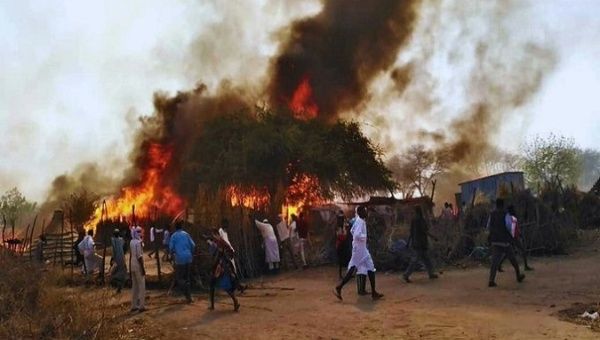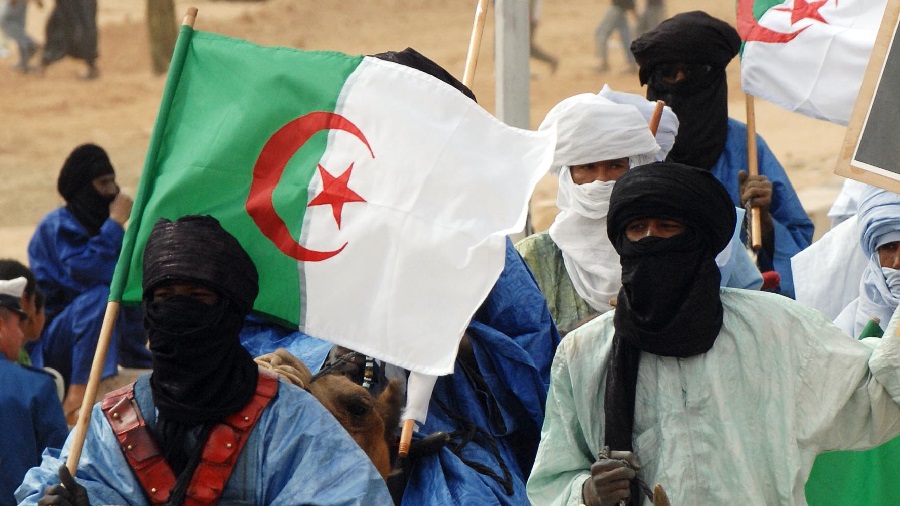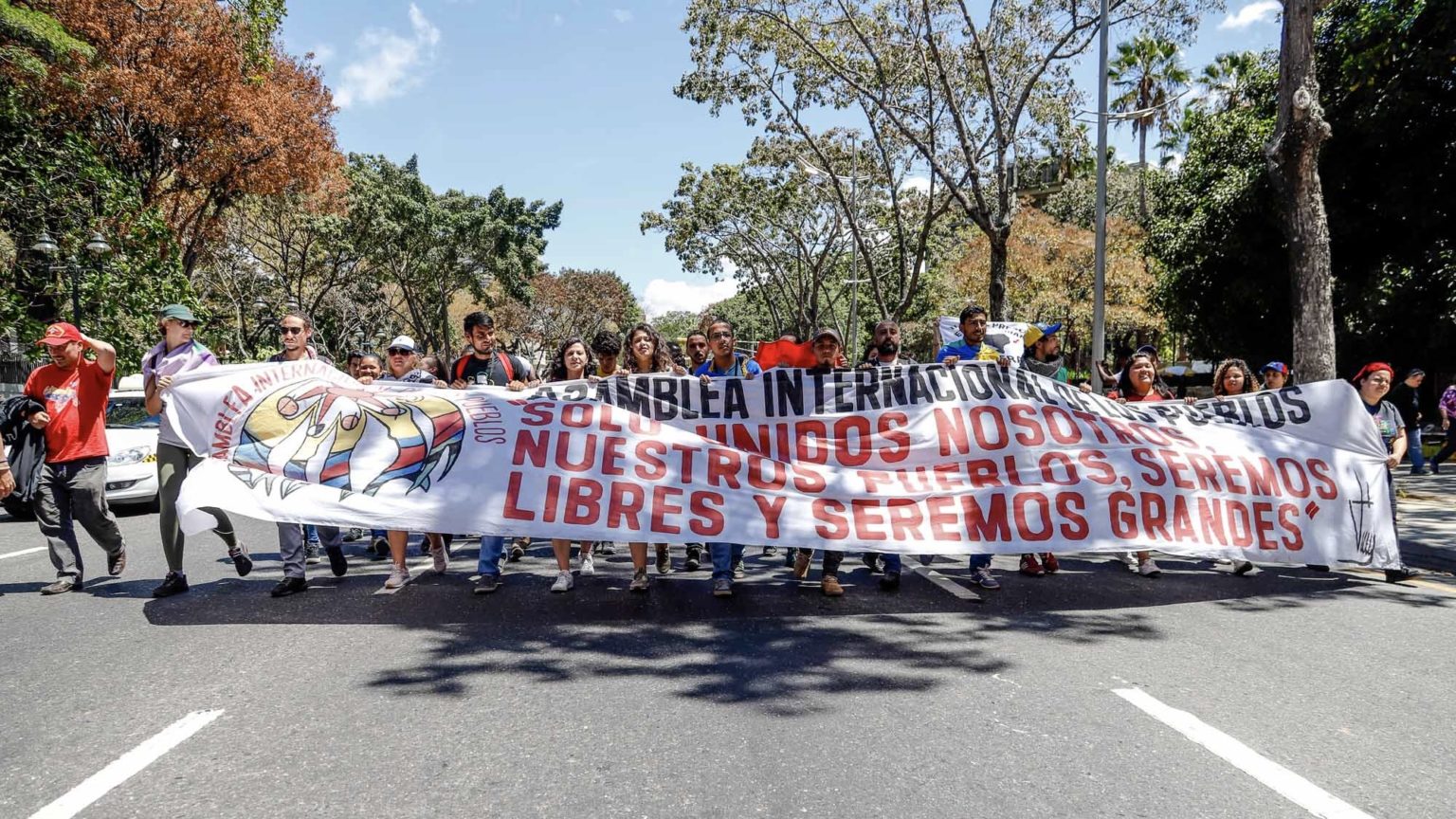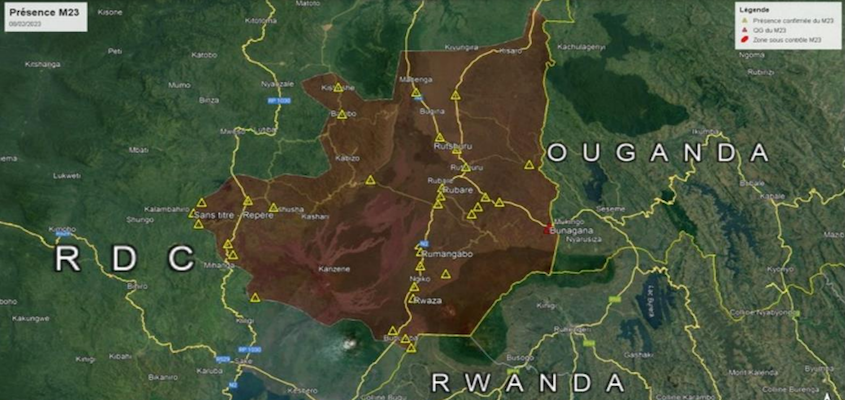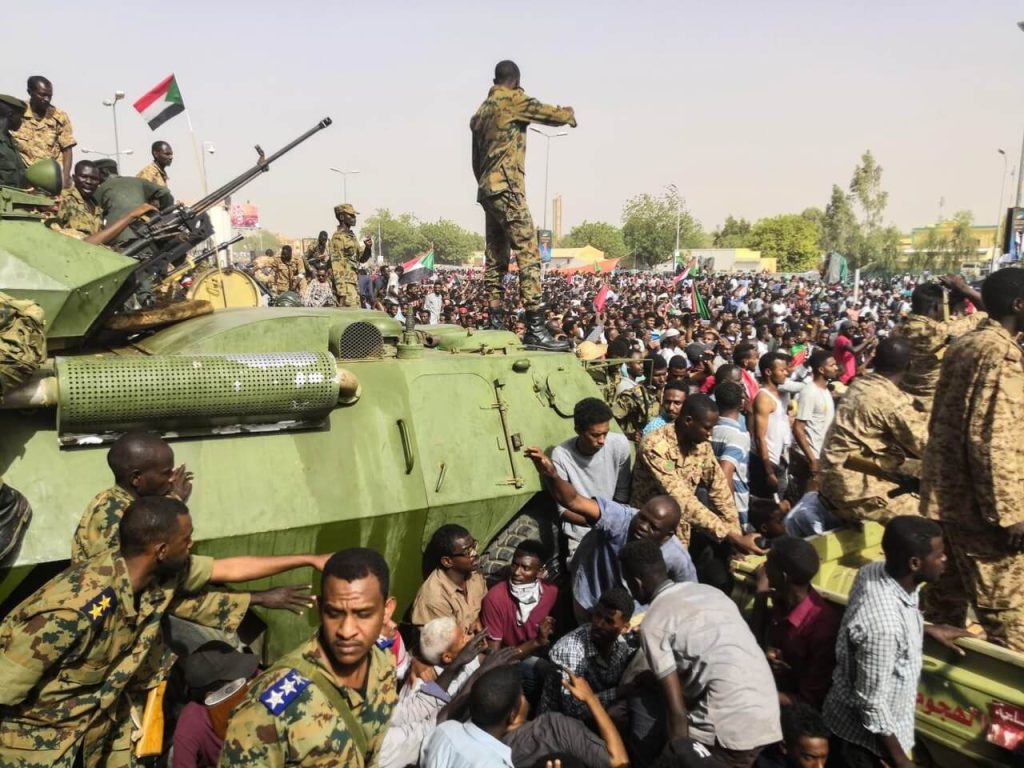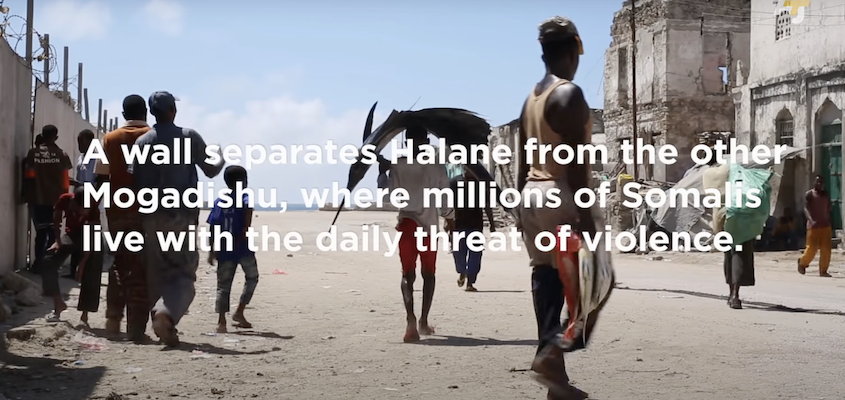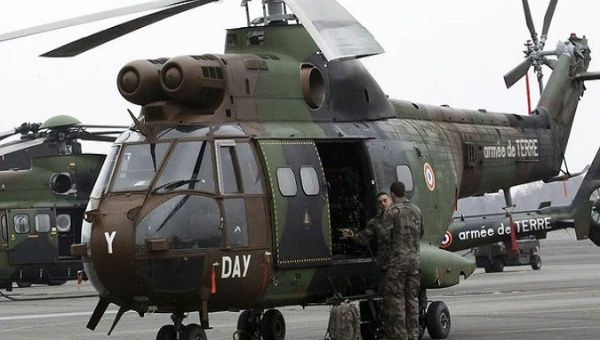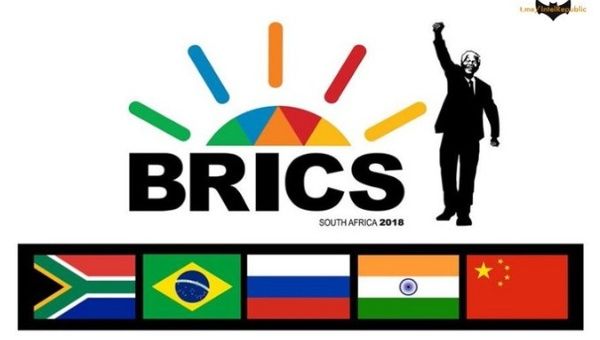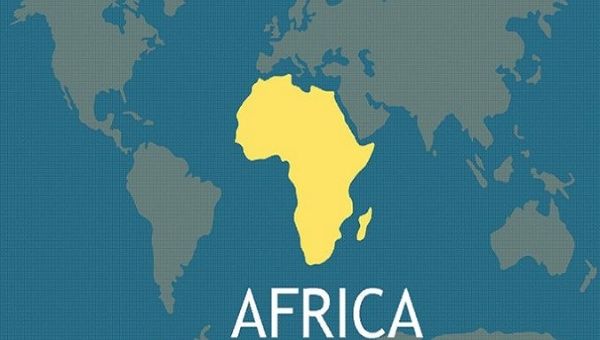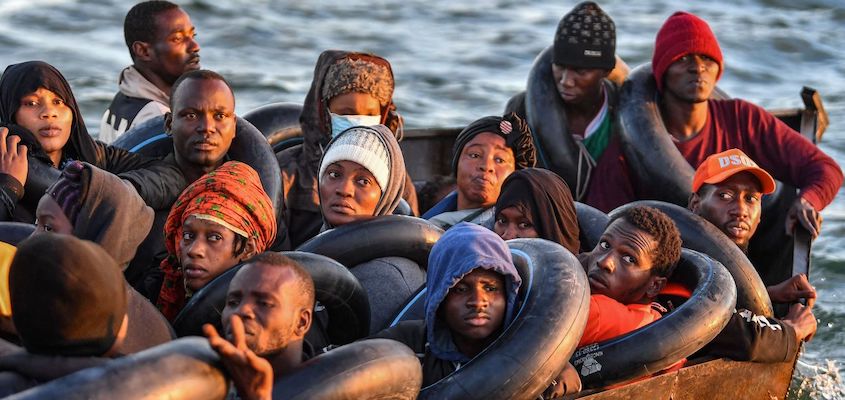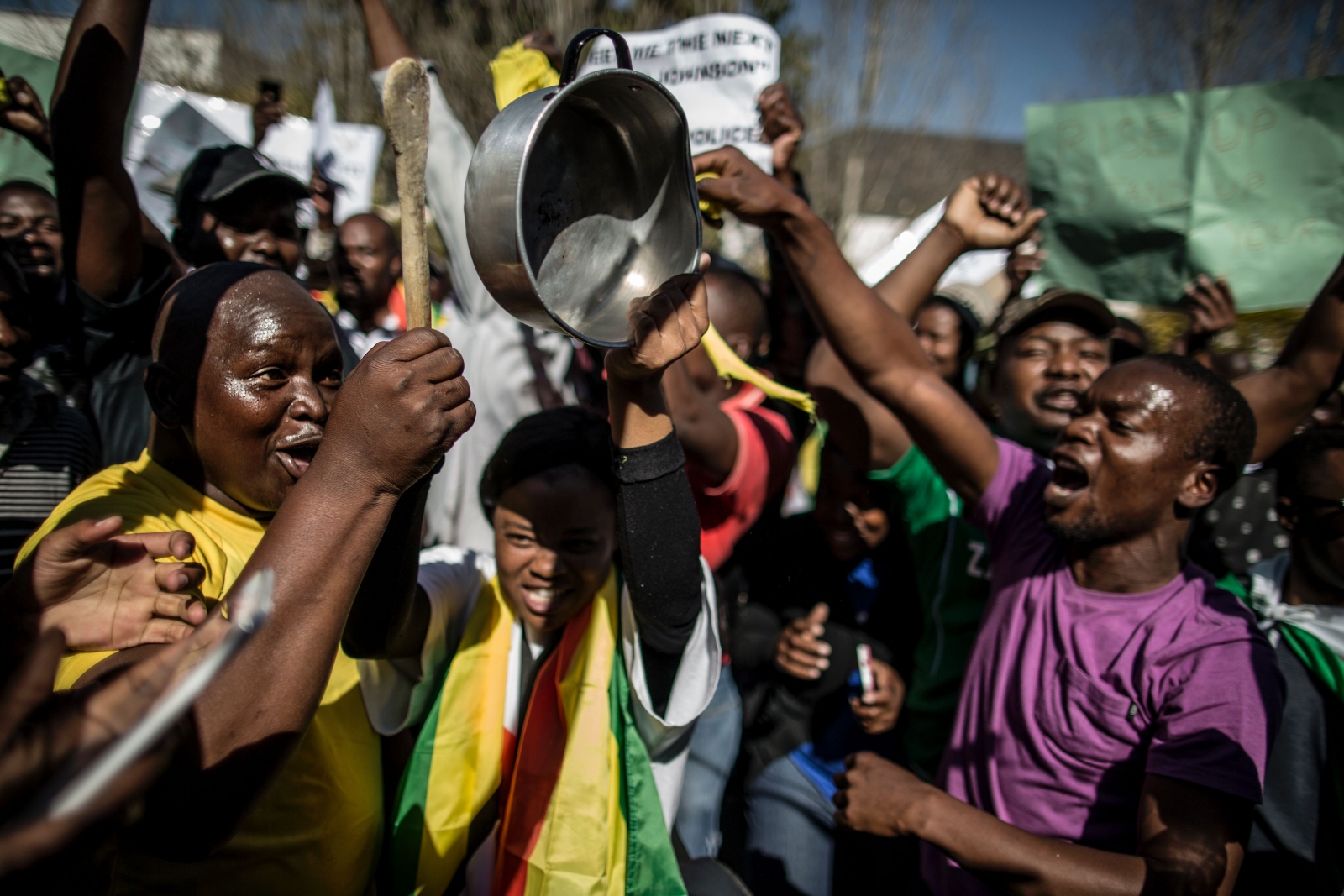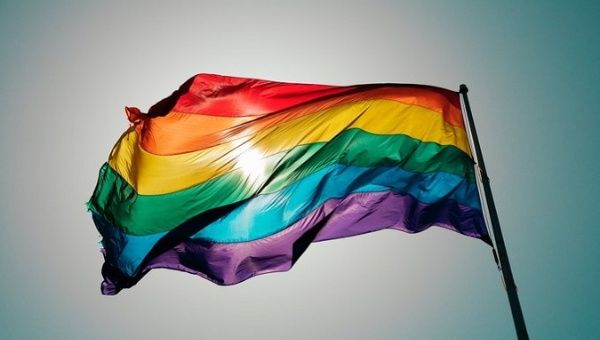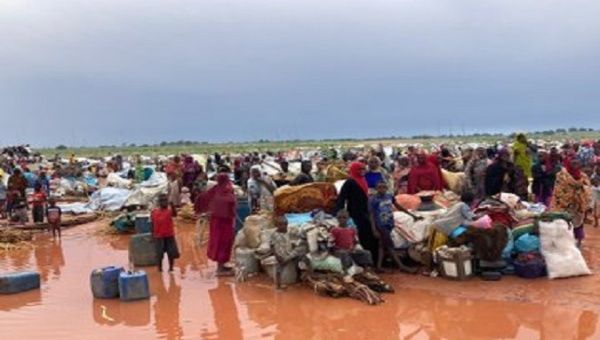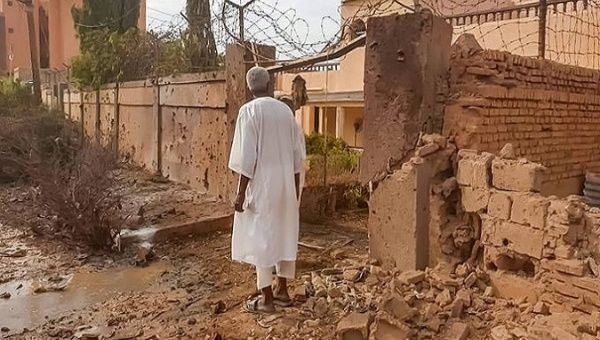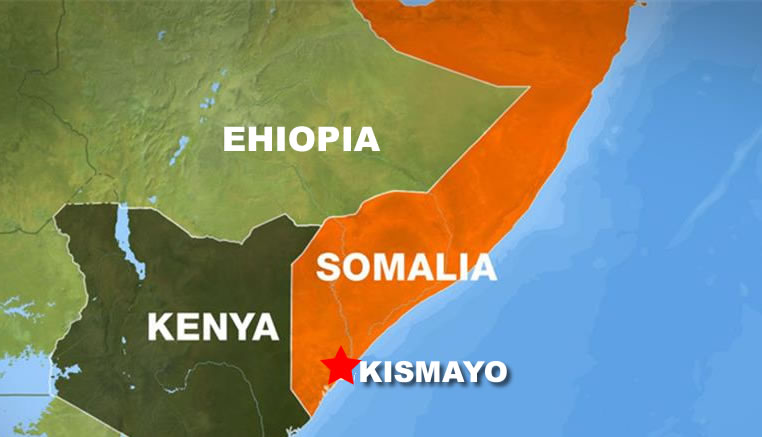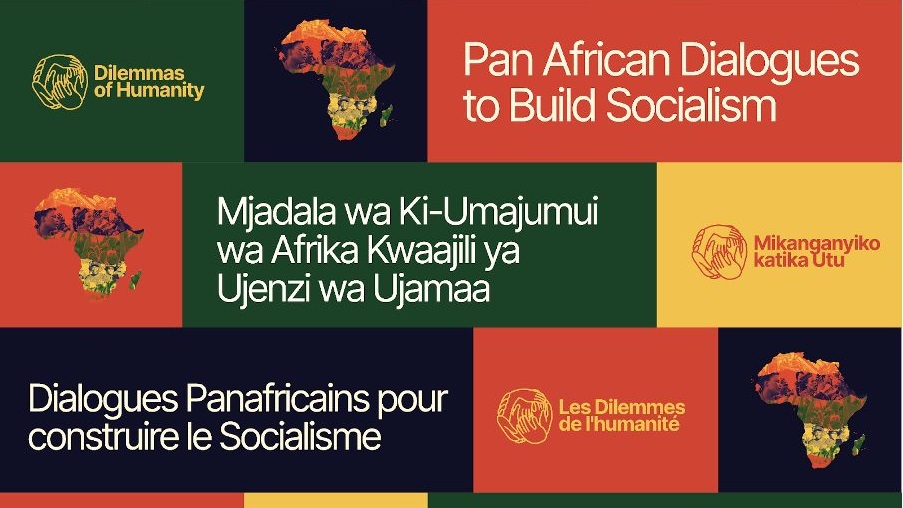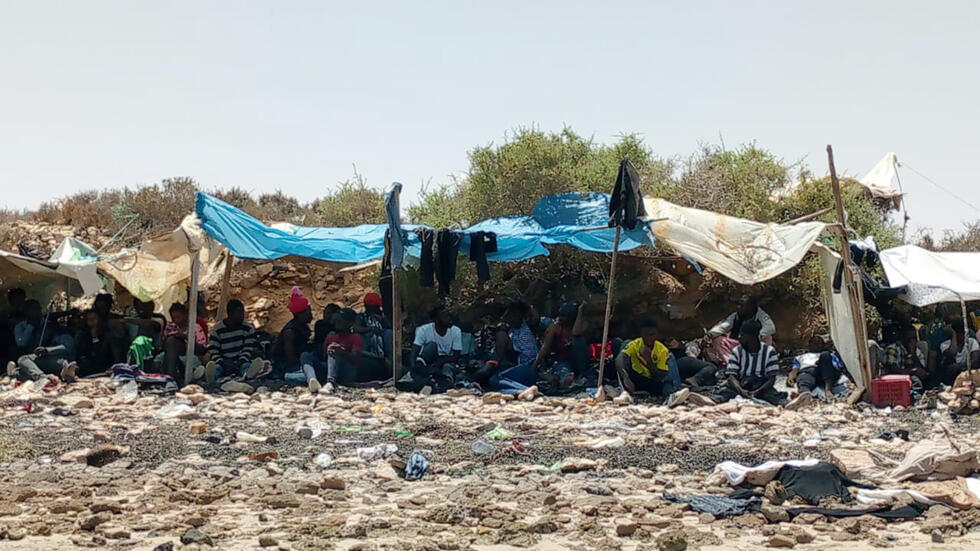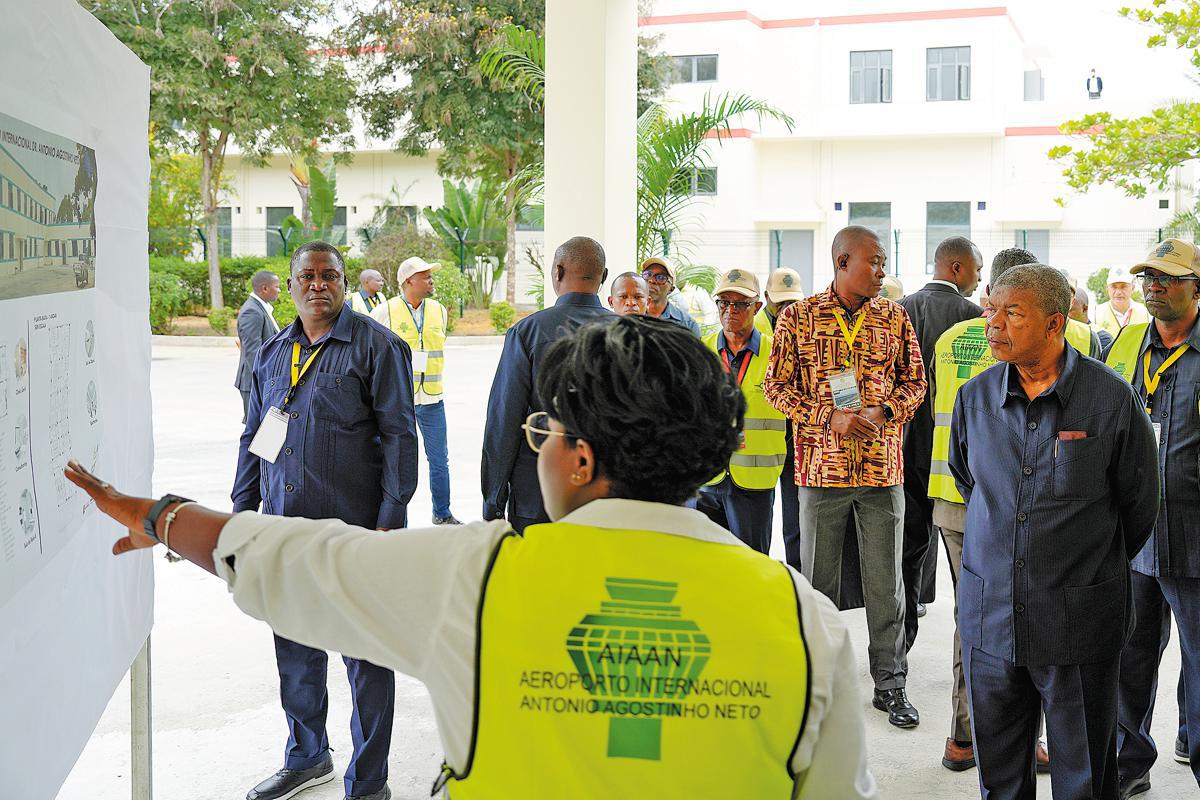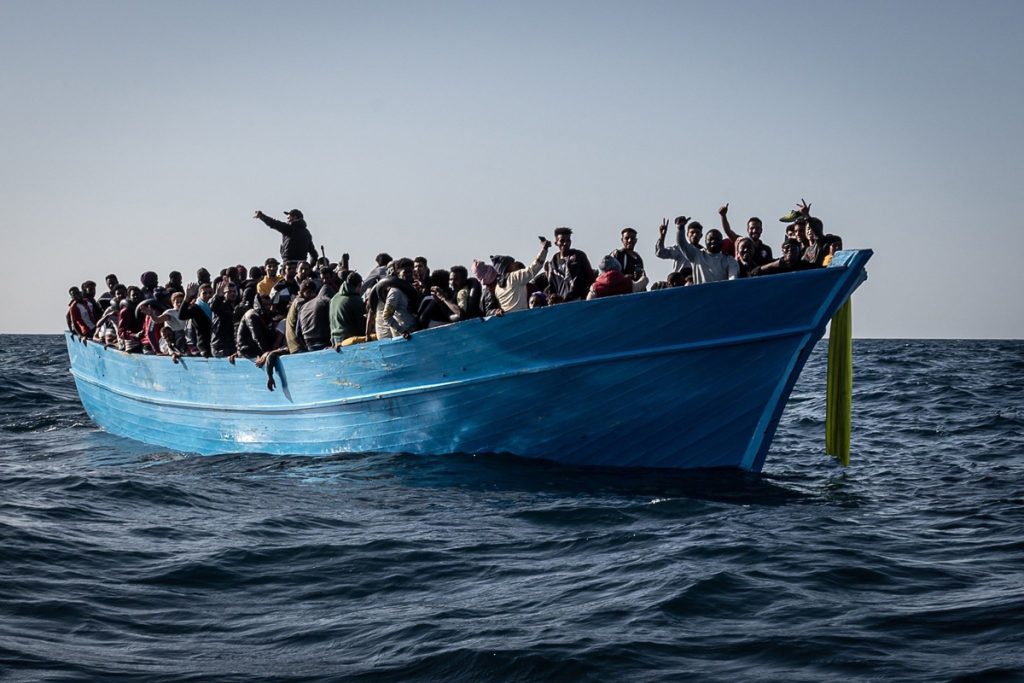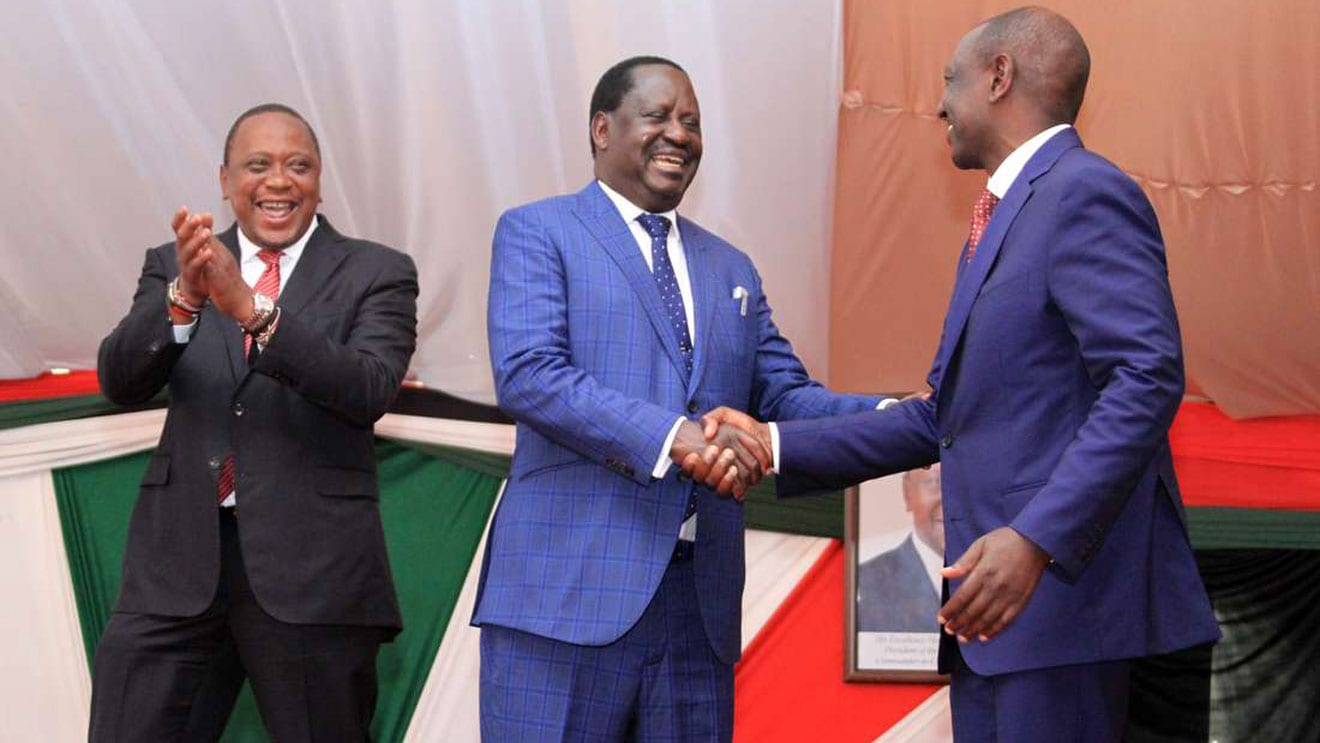Socialist Party of Zambia president Fred M’membe faces threat of arrest
A warrant was issued against Socialist Party President Fred M’membe without any of the proper formalities being followed. He said that the police, in collaboration with ruling UPND cadre drafted into the State House security, intended to “abduct” him
June 19, 2023 by Tanupriya Singh
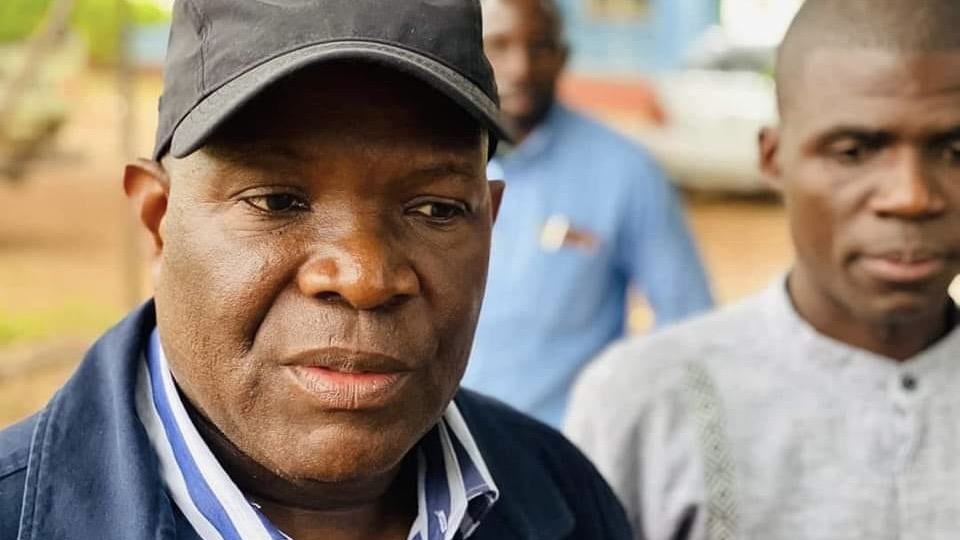
President of the Socialist Party of Zambia, Dr. Fred M’membe.
The Socialist Party (SP) of Zambia is once again the target of persecution by the ruling United Party for National Development (UPND). On June 15, SP President and journalist, Dr. Fred M’membe issued an alert via his social media accounts that the Party had been “reliably informed” that the Police “in collaboration with UPND cadres drafted into the State House security” intended to “abduct” him.
M’membe further accused President Hakainde Hichilema, together with the Deputy Inspector General of Police of the State House, Mr. Fanwell Siandenge, of handling issues of law enforcement in a “gestapo style,” adding that the SP had been informed that Siandenge was “working in cohorts with known UPND cadres in State House security”.
On June 16, M’membe stated that a warrant of arrest had been issued against him. However, he emphasized that no prior police callout had been issued.
Under normal procedure, a callout notice gives an individual an opportunity to go to a police station to respond to the allegations made against them, Akende Chundama, the spokesperson of the SP chairperson explained to Peoples Dispatch. An arrest warrant is issued when the individual ignores the notice.
“What they want is to use this warrant to abduct me,” M’membe warned in a post.
In a later update, he added that President Hichilema, who was in Ukraine on June 16 as part of a “peace mission” with six other African heads of state, had issued instructions that M’membe be arrested before he returned to Zambia in a plan to “insulate Mr. Hichilema from the gestapo style of policing (abductions)”.
According to M’membe, the warrant for his arrest is in relation to two letters allegedly issued by government officials that have been shared on social media.
The first letter, dated March 14, 2023 bears the signature of the Permanent Secretary in the Ministry of Home Affairs and Internal Security, Josephs R. Akafumba, and requests the Secretary to the Cabinet to petition the Vatican regarding the actions of Archbishop Alick Banda of the Catholic Archdiocese of Lusaka, accusing him of “working with a foreign entity to undermine the sovereignty of the Republic of Zambia.”
The second letter, dated December 7, 2021, titled “Presidential Directive” appears to bear the signature of President Hichilema and is addressed to the Director General of the Zambia Security Intelligence Service, directing him to “contain the influence” of the Roman Catholic Church on “other Faith Based Organizations,” “government and quasi-government institutions,” and “on the Republic” and to contain the influence of the Arch-Diocese of Lusaka on the Republic.
During the 2021 elections, some members of the Catholic Church had supported the Patriotic Front (PF) which was in power then while others had supported a change in government, Akende said. After the election, some members of the Church had started speaking out against the promises that the new government, led by incumbent president Hichilema, had made but did not deliver upon, resulting in the emergence of a wedge between the two.
In a press conference, Ministry of Information spokesperson, Thabo Kawana, stated that the alleged letters were fake, and that action would be taken against those who had circulated them.
Kawana proceeded to list the Facebook pages of the PF, the page of news platform Grindstone Television, and that of M’membe as those who had circulated the alleged letters.
Luki and Phiri were reportedly detained by police and subsequently held at the Woodlands Police Station. Phiri had allegedly obtained the said letters from the Facebook page of UPND member, Matomola Likwanya, according to the SP.
On June 17, it was reported that Zambian police had formally charged and arrested former diplomat and PF Central Committee member and presidential aspirant, Emmanuel Mwamba, and one other person, Andy Luchinde, with forgery and publication of information in relation to the two letters.
Mwamba, who had been detained earlier this week, has stated that he was brutally attacked by a group of men at a car wash before being forcibly taken to a police station. A picture of Mwamba at the University Teaching Hospital where he sought medical care on June 16 shows him with bruises on his arm.
Growing attacks against the SP
Meanwhile, this recent episode comes just months after the SP was brutally attacked by UPND cadres during election campaigning in the Muchinda ward in April. While none of the attackers were apprehended at the time, the police in turn arrested and charged M’membe with “Unlawful discharge of a firearm” and “Assault occasioning actual bodily harm”.
M’membe, and the SP, have been a steadfast voice in the resistance to US imperialism in Africa and its coercion, through various means, of countries on the continent to serve its narrow foreign policy and strategic interests.
Within Zambia, the SP has offered an alternative political vision for the people— away from the neoliberal policies of successive governments, and one which addresses core issues of poverty and inequality.
M’membe has condemned the Hichilema administration for carrying out “retaliatory arrests” and political repression. He has highlighted recent arrests including that of Chris Zumani Zimba, a political advisor to former president Edgar Lungu from the Patriotic Front (PF) on the charge of “being in possession of articles for terrorism” as examples.
As M’membe faces a renewed threat of arrest, he has received messages of support and solidarity, including from the International Peoples’ Assembly, which is a network of over 200 trade unions, political parties, and social movements from around the world.
The National Union of Metalworkers of South Africa (NUMSA) also strongly condemned the arrest warrant against M’membe in a statement on June 17, recalling how before coming to power, Hichilema had himself been a victim of unlawful detention by the state under former president Lungu.
“We are demanding that Hichilema must stop his senseless and ruthless attacks on members of the opposition…Hands off Fred M’membe, hands off!,” the union said, adding that while Hichilema had been “celebrated by the liberal media when he was elected”, he was “behaving like a tin-pot dictator”.
“His behavior is an excellent lesson to all those who naively believe that liberalism is democratic. Liberalism is democracy for the benefit of corporations…If at that time democracy is dispensable, they will dispense with it, as long as it serves their interests.”
“There is a sentiment of disappointment among the people, of betrayal of what was promised [by the Hichilema government] but has not been delivered,” Akende told Peoples Dispatch.
“These sentiments have grown against the backdrop of the people seeing the Socialist Party as an alternative [political force] in the 2026 general elections…The SP is fighting for the rights and the livelihoods of the people, and the repression will grow, but we are prepared,” she added.
https://peoplesdispatch.org/2023/06/19/ ... of-arrest/
************
Bomb Blast Kills Three People in Police Vehicle in NE Kenya
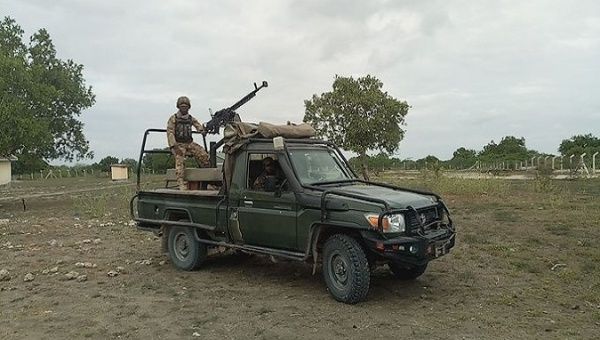
KDF police vehicle in Kenya. Jun. 21, 2023. | Photo: Twitter/@Abdisalamguled
Published 21 June 2023
"...the victims are two policemen and an engineer..."
On Tuesday afternoon, at least three people were killed by a bomb explosion in the vicinity of the town of Guba, located in Mandera county, near the border with Somalia.
Official reports state that the victims are two policemen and an engineer, but their identities have not yet been revealed; the primary suspect of the incident is the Somali group, Al Shabaab.
Amos Mariba, the Mandera County Commissioner, confirmed the incident and detailed that a security forces vehicle "was hit by an anti-personnel mine."
Mariba also explained that the police vehicle was escorting a bus that was heading from the town of Banisa to Sarman, both located in the north of Mandera, while he assured that after the explosion there was a shootout. "Our officers acted bravely in front of the attackers and managed to repel them," Mariba said.
"There was no further damage. All passengers on the bus have been rescued and are now traveling towards Mandera under full escort," he added.
According to the statement, this event took place two days after two military personnel were killed in an attack by suspected Al Shabaab members in Lamu county, also located near the Somali border, in which more than 20 soldiers were also wounded.
Official reports show that Al Shabaab has carried out numerous attacks in Kenya and against Kenyan military personnel deployed in Somalia.
On Tuesday, in response to this situation, Aden Duale, the Kenyan Defense Minister, said that the government plans to modernize the weaponry of the Armed Forces in order to fight against Al Shabaab and end the attacks in the region.
https://www.telesurenglish.net/news/Bom ... -0004.html
Libya: 165 Nigerian Migrants Deported, 90 Are Women
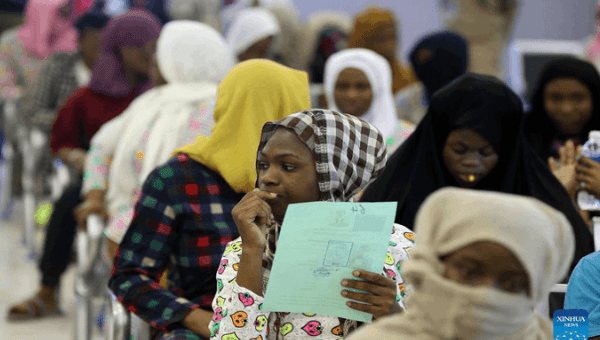
Nigerian women migrants before being deported. Jun. 21, 2023. | Photo: Twitter/@RatopatiE
Published 21 June 2023 (8 hours 40 minutes ago)
"...the women and their children were placed in a room at the headquarters of the Anti-Migration Agency in Tripoli..."
On Tuesday, Libyan authorities announced that, in coordination with the International Organization for Migration as part of a voluntary return program, deported 165 Nigerian migrants, more than half of them women and children.
Colonel Haitham Belqasim, spokesman for the Libyan Anti-Illegal Immigration Agency, said in an official statement that Libyan authorities have "deported 165 illegal immigrants to Nigeria," adding that among the deported immigrants were "90 women and nine children."
According to official reports, the women and their children were placed in a room at the headquarters of the Anti-Migration Agency in Tripoli, under the guard of policewomen who monitored the distribution of meals, drinks and travel necessities.
The migrants were deported from Tripoli's Mitiga International Airport on board a private Libyan airline, Al-Buraq. “Other flights are scheduled to be organized next week to Nigeria," said Belqasim.
According to the International Organization for Migration, a total of 7,477 illegal immigrants have been rescued and returned to Libya so far this year.
Official data show that, due to the insecurity and chaos in the country since the fall of late leader Muammar Gaddafi's government in 2011, many immigrants, mostly Africans, choose to cross the Mediterranean Sea to European shores via Libya.
Last week, the United Nations Support Mission in Libya expressed its concern about the "arbitrary detention" of thousands of migrants and asylum seekers in Libya, calling on the Libyan authorities to stop these measures and treat migrants with "dignity" and "humanity.”
https://www.telesurenglish.net/news/Lib ... -0002.html
***********
Mali Demands That UN Troops Leave
JUNE 19, 2023

The uniforms of United Nations peacekeepers are seen in Mali. Photo: United Nations/Minusma.
Bamako’s top diplomat said the international peacekeeping mission has become “part of the problem”
Mali has called on the United Nations to end its decade-long peacekeeping mission “without delay,” saying the international military force has only fueled tensions and instability in the African country.
Addressing the UN Security Council on Friday, Malian Foreign Minister Abdoulaye Diop said officials are willing to continue coordination with the UN, but demanded an end to its “stabilization mission.” The UN force, known as MINUSMA, was deployed in 2013 in response to the Tuareg rebellion in the northern part of the country.
“Unfortunately, MINUSMA seems to have become a part of the problem in fueling inter-community tensions,” Diop said, calling for the withdrawal of UN troops.
The minister accused UN forces of “begetting mistrust among the Malian population” and creating a “crisis of confidence” within the government.
MINUSMA head El Ghassim Wane responded by saying that it would be “nearly impossible” to continue the UN mission without the consent of the host country. The UN has until June 30 to extend the deployment, which requires nine votes in favor from the Security Council and no vetoes from its five permanent members.
Relations between Bamako and the UN have deteriorated over the last year, with Mali’s interim military authorities suspending troop rotations under MINUSMA in July 2022. The decision came shortly after the Malian authorities arrested 49 soldiers from Cote d’Ivoire and described them as “mercenaries.” Ivorian officials, meanwhile, insisted that the troops were part of the peacekeeping mission.
Last August, Mali ordered the expulsion of MINUSMA spokesman Olivier Salgado after he publicly stated that the Ivorian military personnel were assigned to the UN force. The head of MINUSMA’s human rights office, Guillaume Ngefa Atonodok Andali, was also declared persona non grata in February and was asked to leave the country for “destabilizing and subversive actions.”
Mali has seen years of political instability, including two separate coups in 2020 and 2021 and an ongoing jihadist insurgency in the country’s rural northern region. The 2012 Tuareg uprising led to the creation of the UN mission, which ultimately swelled to more than 15,000 foreign troops. The international mission was aimed at bolstering security in Mali, as well as facilitating humanitarian aid and the transition to civilian government.
Moscow has said that MINUSMA lacks the proper mandate to assist Mali with its most pressing problems. Speaking to the Security Council on Friday, Russian UN envoy Vassily Nebenzia argued that the local government’s top priority was “fighting terrorism,” which he said is not a main focus of the UN mission.
Separately from the UN, France deployed its own troops in 2014 to fight insurgents on behalf of the Malian government. The French soldiers withdrew from the country last year as the relations between Paris and Bamako worsened.
https://orinocotribune.com/mali-demands ... ops-leave/
****************
Sudanese left skeptical of US-Saudi led peace talks, “The resolution has to be found here in Sudan”
The Sudanese Communist Party argues that the ceasefire mainly serves for the warring parties resupply their forces and resume fighting with greater intensity
June 20, 2023 by Pavan Kulkarni
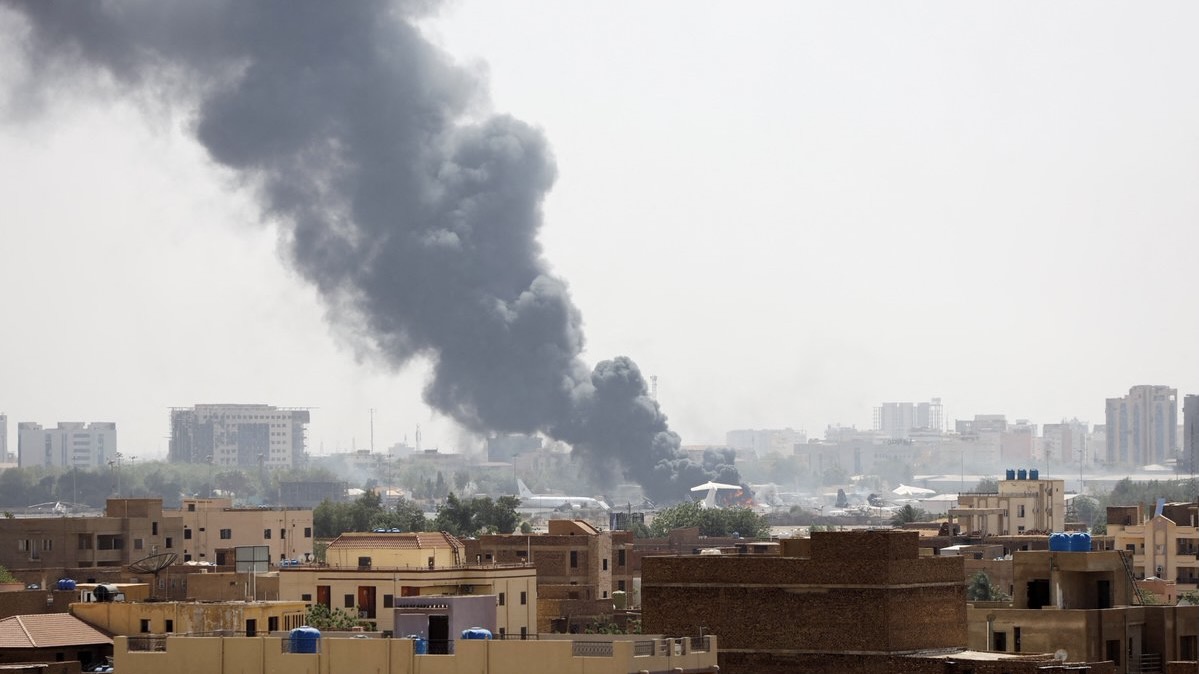
The Sudanese Armed Forces have been carrying out air raids of residential areas occupied by the RSF in the capital Khartoum. Photo: ICRC
The fighting between the Sudanese Armed Forces (SAF) and the paramilitary Rapid Support Forces (RSF), which entered its third month on June 15, has lulled into an uneasy calm with the start of the 72-hour-long ceasefire from 6 am on Sunday, June 18, albeit with violations.
In the agreement, secured late on June 17 at talks jointly hosted by the United States and Saudi Arabia in the latter’s city of Jeddah, both sides committed to not undertake offensives, resupply their forces or reinforce their positions.
The US-Saudi joint statement on the talks also highlights that the parties have “agreed to allow the unimpeded movement and delivery of humanitarian assistance throughout the country.”
While similar commitments were made in the previous, frequently violated, ceasefire agreement, hardly any aid reached the civilians trapped in the fighting during the week-long truce at the end of May.
“The agreement only proved to help both the warring parties to reorganize, resupply, and strengthen forces. What followed was the worst of the fighting,” Fathi Elfadl, national spokesperson of the Sudanese Communist Party (SCP), told Peoples Dispatch.
He fears that the new ceasefire is bound to have the same effect again. Elfadl believes that the RSF, whose fighters are mostly from a group of nomadic Arabic-speaking tribes spread across the national borders in the region, “is bringing in more fighters from neighboring countries like Central Africa, Niger etc.”
“The army is mobilizing troops from different parts of Sudan…We are not at all hopeful of any positive outcome from Jeddah. The fighting has only intensified and spread since these talks began there [on May 6], and both sides are stronger than before.”
“Even if this ceasefire lasts for three days, it is back to hell again after that,” he added, insisting that “hell” is the proper word to describe what the civilians are enduring, especially in Darfur in western Sudan and in the national capital region.
In capital Khartoum and its sister cities of Khartoum Bahri (North) and Omdurman, the SAF’s planes have been bombing densely populated residential areas with artillery and airstrikes, while the RSF kill, loot and rape civilians on the ground, and occupy their homes and properties.
An increasing number of civilians have been displaced or caught in the crossfire, especially over the last few weeks since the army dispatched additional infantry to engage the RSF in street battles in the residential neighborhoods they occupy.
Along with several homes, Elfadl said that the RSF has also occupied and destroyed the Abdel Karim Merghani Cultural Center. It describes itself as a “library, a research resource, a lecture and performance arts venue and a publishing house for Sudan’s written culture and history.”
SCP’s headquarters was also occupied by the RSF on May 25. Only on June 18, the SCP members, including Elfadl, were able to enter their office again. “Although the RSF troops have now vacated the headquarters, the whole neighborhood of Khartoum 2 is now under the control of the RSF,” Elfadl said. He added that the SAF meanwhile, has been forcing civilians to vacate the city so they can fight the RSF.
“I advise the civilians that if the RSF elements occupy your house and you are forced out, the neighbors, in turn, should evacuate the houses adjacent to this house because from now on, we will attack them anywhere,” General Yasir al-Atta announced on June 16.
Soon after this announcement, the SAF unleashed two days of heavy shelling and airstrikes on residential areas around the capital region, during which 217 people were estimated to have been killed in Khartoum and its sister cities, Elfadl said. Most of the deaths occurred in the northern part of Khartoum and in northern and central parts of Omdurman, where he resides.
Thousands killed in two months
In the two months of fighting, more than 3,000 people have been killed and over 6,000 have been injured, Health Minister Haitham Ibrahim said on June 17. This data seems to exclude the killings in West Darfur state’s capital El Geneina because all the hospitals “are out of service” in the city which is under siege and incommunicado. According to a report published on Monday, June 19, by an organization representing the tribe under siege in Darfur, more than 5,000 people had been killed in El Geneina alone, as of June 12.
In a statement that day, Fadil Omar, spokesperson of a local Resistance Committee, said, “The city of Geneina is now isolated, with its residential neighborhoods and displacement camps cut off from the world… say this with complete certainty: no place on this earth is more miserable than Geneina.”
He added that reports indicate that “the majority of kidney patients in the region and those with chronic illnesses, especially those suffering from heart problems, have either died or are on the brink of death. Pregnant women are also experiencing highly challenging conditions, and there are reports of cases of rape in the area.”
Two days after Omar’s statement, the governor of West Darfur, Khamis Abakar, was killed on June 14. He is the highest government functionary to be killed since the war broke out between the SAF and the RSF. Footage shows him being detained by a group of armed persons, including several in RSF uniform. Another video allegedly showed his bloodied dead body, lying on the ground with slash wounds, including on the side of his neck.
The civil society activists, the SAF, and the UN have all accused the RSF of his murder. Denying the charge, the RSF claimed in a statement that it had taken his custody and driven him to the headquarters in El Geneina “to protect the governor” but “two outlaws” killed him after kidnapping him from the RSF’s custody. Their statement has been met with skepticism.
Abakar was a member of the Justice and Equality Movement (JEM), which was among the armed groups in Darfur at war with the Sudanese state in 2003. In protest to the political and economic marginalization under the Islamist regime of former dictator Omar al Bashir, the region’s sedentary farming tribes, that speak local African languages, supported the armed rebel groups.
The regime in turn armed and organized into militias a group of nomadic Arabic-speaking cattle-herding tribes, whose competition with the African farmers over resources had been intensifying, particularly since the increased desertification in the mid-1980s.
These militias, known as the Janjaweed, committed mass atrocities in coordination with the SAF, whose Darfur commander at the time was Abdel Fattah al Burhan, the current chief of the SAF. The first five years of the civil war left 200,000 to 300,000 dead and millions displaced by 2008. In 2009, the International Criminal Court (ICC) indicted Bashir for genocide, crimes against humanity, and war crimes, but he continued to rule for another decade.
The Janjaweed, in the meantime, coalesced to form the RSF in 2013 under the command of Mohamed Hamdan Dagalo, aka Hemeti. He has since taken control over much of the mining sector in Darfur, home to the majority of Sudan’s gold deposits. Sudan is Africa’s third largest producer of the precious metal.
After months of mass pro-democracy protests, which had erupted in December 2018, forced the removal of Bashir in April 2019, his trusted generals, SAF chief Burhan and RSF chief Hemeti, formed a military junta, with the former as its chairman and the latter as his deputy.
After the RSF put down the pro-democracy mass demonstration outside the SAF’s HQ with a massacre on June 3, 2019, the junta agreed to share power with a coalition of right-wing parties in August of that year and formed a joint civilian-military transitional government.
Juba peace agreement reaches a dead-end; Darfur back to civil war
In August 2020, several armed groups, including the JEM in Darfur, went on to sign the Juba peace agreement. This brought no peace to Darfur. Since the agreement was signed, several hundred thousand more have been displaced in attacks by the nomadic Arab tribes, armed and backed by the RSF, which was accused of undertaking a depopulation campaign with the support of SAF.
Nevertheless, the leaders of different armed groups who got a share in state power, including Khamis Abakar, went on to later support the military coup by Burhan and Hemeti in October 2021 to remove the civilians in the transitional government. All state power has since been concentrated in the military junta led by Burhan and Hemeti, with the former rebel commanders also enjoying their share.
Elfadl argued that Abakar had become one of the “collaborators used by the military junta”. After the internal power struggle simmering between the junta’s leaders, Burhan and Hemeti, exploded into a war on April 15, pitting SAF and RSF against each other, the RSF, along with the Arab tribes from which its troops hail, have unleashed a mass killing of African tribes. Most of the victims were living in camps, displaced during the civil war.
In these circumstances, Abakar, who hails from the Masalit, the largest tribe in the African farming community under attack in Darfur, broke ranks with Hemeti and started organizing defense for his community, explained Elfadl. “So the RSF removed him from the governor’s office by assassination.”
In an interview hours before he was killed, he accused the RSF and its Arab militias of repeating a “genocide”. He had urged the international community to bring the killings to a stop, pointing out that, “Civilians are being killed randomly and in large numbers…We haven’t seen the army leave its base to defend people.”
Abakar’s killing is yet another reiteration that the Juba peace agreement is a dead-end, offering no way out of the spiral of violence, Elfadl argued.
The SCP, the Darfur Bar Association, and the General Coordination of Displaced and Refugees have all criticized the agreement as a mere power-sharing arrangement between the junta and rebel leaders. The key questions of resources and rehabilitation of the Internally Displaced Persons (IDPs) have yet to be considered in earnest, making peace in Darfur still out of reach.
Other states in the Darfur region, including South Darfur and North Darfur, have also suffered attacks and killings. Late last month, Minni Minnawi, a former rebel leader of Sudanese Liberation Army’s largest faction, called on people to arm themselves. Minnawi had signed the Juba agreement and went on to support the coup after being appointed the regional governor of Darfur (including five states).
Minnawi’s call to arms, Elfadl argued, is an indication of his “desperation”. “After the Juba agreement, his own armed group splintered into different groups, and he can no longer rely on them. So he is asking others to take arms,” Elfadl said. “There was no need for him to call on people to take arms. Arms are everywhere in Darfur, and a civil war is already underway. He is only fueling it further.”
His call to arms, Elfadl reiterates, “is only a clear confirmation that the Juba agreement has brought no peace at all to Darfur. On the contrary, Darfur is going through the worst violence it has seen since the beginning of the civil war in 2003.”
“The consequences have been devastating on the communities, with over 100,000 people forced to flee across the border to Chad,” Toby Howard, the coordinator of the UN refugee agency (UNHCR) in Darfur, said last week. Another hundred thousand have been displaced within Darfur.
Across Sudan, almost 2.5 million people have been displaced since the war started on April 15. This figure includes an estimated 1.9 million people who have been internally displaced, and another 550,000 who have fled to neighboring countries, the International Organization for Migration (IOM) reported on Monday, June 19.
They include over a million children, 270,000 of whom were displaced in Darfur, which had most of the 3.6 million IDPs already living in camps across Sudan by the end of 2022.
The ceasefire agreement is reported to have reduced the scale of violence in Darfur, although attacks were reported in North Darfur. But the ceasefire expires at six on the morning of Wednesday, June 21.
Democratic forces fight for peace
No resolution to the conflict in Sudan can be brokered by the US and Saudi Arabia in Jeddah, Elfadl argued, adding, “The resolution has to be found here in Sudan.” Left to the international powers to bring the conflict to an end, he warns, Sudan will be hurling toward a situation comparable to that in Iraq, Syria, or Libya. The war, he argued, can only be stopped decisively after power is “usurped” from the generals, and they are put to trial for igniting this war.
To this end, “we are trying as a first step to find the broadest possible agreement on a common minimum program for Sudan’s future, among all the different political forces who are truly opposed to this war.”
Already, in parts of Sudan where there is no active fighting, protesters are trying to reclaim the streets with anti-war, pro-democracy demonstrations, especially in Atbara, a northeastern city with a militant labor history which saw the first protests of the December Revolution in 2018. “Port Sudan and some other cities in the eastern region have also witnessed protests,” Elfadl said.
“Although not large enough yet, it is the beginning. The democratic forces in Sudan, which is the majority of the population, are gradually trying to occupy the streets again and reclaim the revolution. Yes, it is still in an embryonic stage. But it is the beginning of a long march to return to the scale of mass demonstrations that characterized Sudan before the war started on April 15.”
https://peoplesdispatch.org/2023/06/20/ ... -in-sudan/
************
Did Former U.S. Army Rangers Conspire to Steal $16 Billion Seized in Counter-Terrorist Raid in the Ivory Coast?
By John Kiriakou - June 20, 2023 3

[Source: Photo courtesy of Iztok Plevnik]
…And Unjustly Imprison an ICC Official Who Was Trying to Return the Money to the U.S. Treasury?
Most Americans complain about corruption, whether at the local, state, or even national levels. Yet we are taught to believe that we don’t have to live with corruption as an endemic part of our culture, like many other countries endure. And so it’s frustrating when one encounters it.

Iztok Plevnik [Source: Photo courtesy of Iztok Plevnik]
And then what happens when the corruption one encounters is so egregious, so bold, as to put a person’s life in danger? What happens when greed clouds the judgment of otherwise accomplished, professional people? What happens when your own lawyer turns against you? And how about if he’s working with Rudy Giuliani to do it? You go to court. And you sue them.
I would like to introduce you to a friend of mine. Iztok Plevnik was born and raised in Slovenia. A patriot and natural athlete, he decided to join his country’s intelligence service, where he specialized in counterterrorist operations. He trained with the U.S. Secret Service and the Navy SEALs before deciding to emigrate to the United States in 2003.
Because of his athletic ability, he was drafted as a place kicker by an NFL team in 2004, an offer he declined so that, instead, he could work for a company under contract with the International Criminal Court (ICC). Iztok led counterterrorist teams to retrieve evidence or to capture people around the world under indictment in the ICC.
It was during one of these operations in 2017 that Iztok and his team of operations officers entered a series of alleged terrorist safehouses in Africa in pursuit of terrorist suspects. They found their men. But they also found stash houses with pallets of American currency—notably one with $6 billion and another with $10 billion in $100 bills.
The source of the money is a mystery. It most likely belonged to the government of former Libyan leader Muammar al-Qaddafi. It may have been the CIA’s money. It could have been money hoarded by al-Qaeda. Iztok ordered that the cash be secured in warehouses, and, because he is a patriot, he sought to return it to the U.S. Treasury.
The following account was taken directly from a lawsuit that Iztok has filed in the Federal District Court for the District of Columbia.
Iztok traveled back to the United States in 2018 and engaged the legal services of a former federal judge, Eugene Sullivan, Sr., to walk him through the process of returning the money. How do you get billions of dollars back into the treasury? You can’t just load it onto a plane. Can you imagine flying into Dulles Airport, having a customs agent ask if you are bringing more than $10,000 into the country, and responding that you are bringing in $16 billion in $100 bills? It’s a non-starter.

Eugene Sullivan, Sr. [Source: wikipedia.org]
According to the court papers, Sullivan expressed excitement about the project and said he would inquire at the Treasury Department about the modalities of transferring such a huge amount of money. But a few months later, in a follow-up meeting, his excitement had vanished. He said that he wanted nothing to do with the project and, without any further explanation, he voiced concern for the safety of his family if he remained involved. He was out.
A year and a half later, Covid hit. Iztok arranged for the production of a large number of KN95 masks that he wanted to try to sell to the federal government. That is when Sullivan reversed course on the repatriation of the money, and he told Iztok that he would act as his attorney in the process. Iztok asked Sullivan to make sure that the repatriation was done legally. Could Sullivan liaise with the Department of the Treasury to get a letter authorizing him to carry out the transaction?

[Source: Photo courtesy of Iztok Plevnik]
Just a few days later, Sullivan told Iztok that he had made all the arrangements with the Treasury Department to have Iztok approved to return the money. Iztok was asked to remain outside the Treasury building, next door to the White House, as Sullivan went inside, claiming to meet with Treasury Secretary Steve Mnuchin.
When he came out, he gave Iztok a letter on Treasury Department letterhead, signed by the Department’s General Counsel, authorizing him to return the money. A few days later, a companion letter arrived, also signed by the General Counsel, with wiring instructions to transfer the money to the Treasury Department. Sullivan wished Iztok luck on his trip to Africa.
On December 3, 2020, Iztok flew to Kenya to repatriate the first tranche of the money, $10 billion, to the Treasury Department. Sullivan was standing by in case of a legal problem. Iztok had the money moved from the safehouse to the Nairobi Police Department, where he was told that he needed to show proof that the money was legitimately being sent back to the Treasury. Otherwise, Kenyan banking officials would be unwilling to make the wire transfer.
Iztok called Sullivan in Washington to ask him to call the State Department to ask that they allow the American Embassy in Nairobi to authenticate the letters from Treasury’s General Counsel. But Sullivan refused, saying that it was the middle of the night in Washington and he did not want to wake anybody. In fact, he said, he had a bad feeling about the whole operation, and he told Iztok to abandon the transfer and to return to Washington immediately. Iztok got on the next plane home.
Iztok and Sullivan met in February 2021 at the Justice Department along with Sullivan’s son, attorney Eugene Sullivan II; a Justice Department official, Michael Keilty; and a handful of other DOJ attorneys. The meeting was for the specific purpose of getting Iztok to reveal the location of the money in Africa, something which he declined to do. He said that he had written permission from the Treasury Department to return the money, and that is what he intended to do. He said that he would check in with the local U.S. Embassy when he arrived in Africa.
On August 1, 2021, Iztok flew to Abidjan, Ivory Coast, to attempt to repatriate the second tranche, $6 billion. On Sullivan’s recommendation, he first made an appointment to see James Billington, the American Embassy’s Regional Security Officer. The meeting was supposed to be a simple courtesy. But as soon as Iztok arrived at the Embassy, he notes in the lawsuit, Billington’s hostility was apparent. Billington accused Iztok of having forged the Treasury letters and said that Iztok, Sullivan, and former President Donald Trump would all go to prison for their conspiracy.
Iztok protested, telling Billington that he was there on behalf of the Treasury Department solely to repatriate the money. He told Billington where the money was located and insisted they go immediately to pick it up and bring it back to the American Embassy, but Billington allegedly claimed he was uninterested. Billington reportedly said that, in the meantime, Iztok was not formally under arrest, but that he was being detained, and he was not permitted to leave the Embassy. He was kept in the interview room by three Marine guards armed with machine guns, while nine members of Iztok’s team were waiting outside.
Ninety minutes later, Billington returned to the interview room. Iztok alleges that he said that he had contacted the Treasury Department to check on the authenticity of the letters, but that he had not yet heard back. Four hours later, Iztok was allowed to leave the Embassy.
Of course, by then, all the money was gone, apparently spirited away while Iztok was being “detained.”

Ivorian counter-terrorism troops during raid. [Source: Photo courtesy of Iztok Plevnik]
Iztok went to his hotel, angry, confused, and unable to sleep. And then at 6:00 a.m. the next day, August 4, 2021, 40 Abidjan policemen arrived at the hotel and arrested him. He was arraigned on charges of money laundering and misrepresenting official documents, and, he says, put in a jail cell with murderers and terrorists.
Later in the morning, a local police official put Iztok in a car and took him to the warehouse where the money was supposed to be. The facility, however, contained only illegal drugs, diamonds, coffee and counterfeit cash. The legitimate cash had already been removed—by whom is still not definitively known.
They then returned to the jail, where the “interrogation” began. Iztok was asked repeatedly how he knew about the money. He answered all questions truthfully, he says, but that did not stop police officers from stripping him naked, hanging him from his wrists, beating him severely, and breaking his wrists and fingers during a rough “interrogation session.”

Prisoners captured by Ivorian counter-terrorism squad. [Source: Photo courtesy of Iztok Plevnik]
For that, he alleges that he now suffers from PTSD. That afternoon, he was finally allowed a phone call, which he used to get in touch with his long-time attorney in France who had strong connections in Francophone Africa. His French attorney found him a powerful attorney in Abidjan who went to the jail to visit Iztok. At the jail, the lawsuit says, the attorney was saluted respectfully.
The police official who had beaten Iztok told the attorney that he had been arrested for smuggling weapons to the United Arab Emirates, Iraq and Iran, an outrageous falsehood that made the attorney laugh. Thanks to his attorney’s actions and relationships, Iztok was soon released, and he went back to his hotel to await a flight back to Washington.
On August 8, 2021, Iztok says that he met with Sullivan at the latter’s office in Washington. Sullivan reportedly asked whether he would be willing to go back to Africa to give the repatriation another try. Sullivan allegedly offered Iztok a U.S. diplomatic passport, something that he would have been utterly unauthorized to do.
Iztok left the office for a flight back to his home in Florida. While he was awaiting the flight, Iztok says that Sullivan called to say that he could no longer be his attorney. Sullivan allegedly said falsely and disingenuously that, because Iztok had been charged with crimes “in Ivory Coast and the United States,” the Sullivan family would be at risk of violence if Sullivan continued to represent him. When he landed, Iztok called Sullivan back with a question: “Does that mean the documents you gave me were fake?” Sullivan hung up on him, he says.
Earlier this month, Iztok filed a federal lawsuit against Judge Sullivan; Sullivan’s attorney-son; Keilty, the Justice Department official; Billington, the Embassy security official; and Todd Brown, Billington’s boss and the Acting Assistant Secretary of State for Diplomatic Security, alleging fraud. And that fraud allegation runs deep. First, Sullivan Sr., Billington, Brown and Keilty are all connected. They were all Army Rangers. Is that just a coincidence?
Second, the money disappeared only after Iztok revealed its location to Billington. Third, Sullivan purchased two homes next door to each other in Bethesda, Maryland, a tiny suburb of Washington, D.C. One was for him and his wife. The second was for his recently divorced son. This was despite the fact that he says that he is broke and that his son is going through a difficult and expensive divorce.
And finally, attorney Bruce Fein, a former Associate Deputy Attorney General of the United States, acting on Iztok’s behalf, filed a Freedom of Information Act request with the Treasury Department asking one simple question—were the documents giving Iztok permission to repatriate the money real or fake? Treasury has been unable to find any record that any such letters were ever written.

Bruce Fein [Source: washingtonpost.com]
The suit goes on to ask several important questions: Did Sullivan, Sr., Sullivan II, Billington, Brown and Keilty conspire to steal the money? If so, did they throw Iztok to the wolves in the Ivory Coast? Was his arrest and beating there meant to frighten him off the case? Was it meant to kill him? And where is the money? Was it laundered and distributed among the conspirators?
So far, only the Sullivans have responded to the lawsuit. Their entire response was confined to two short paragraphs. It said,
“Absent from the complaint is an allegation that Eugene Sullivan made a false statement of material fact that caused Plaintiff [Iztok] damages. The only alleged false statement alleged to have been made by Eugene Sullivan is: ‘Plaintiff left Defendant Sullivan I’s office to fly back to Florida, where he resides. Approximately 45 minutes after Plaintiff left, Defendant Sullivan I called him and said Defendant Sullivan I could not represent him any longer. Defendant Sullivan I falsely stated Plaintiff had been accused of criminality in both the United States and Ivory Coast and that Defendant Sullivan I’s family would be threatened if he continued to represent Plaintiff.’
“The complaint does not explain how Eugene Sullivan’s alleged statement to Plaintiff that Plaintiff had been accused of criminality in both the United States and Ivory Coast could be material to Plaintiff’s cause of action, even if it were false, or how the statement could have caused Plaintiff damages.
Because Plaintiff’s damages are alleged to have taken place when Plaintiff was arrested in Abidjan, Ivory Coast, those damages were—based on Plaintiff’s complaint—caused by Plaintiff’s arrest in a foreign country, rather than Eugene Sullivan’s alleged statement to Plaintiff.”
Most notably, neither of the Sullivans challenge the specific allegations of fraud.
Their response to the lawsuit is a lot of gobbledygook. What it doesn’t say is “I didn’t steal the money.” And that, after all, is the bottom line. I’ll let you know how the case plays out.
https://covertactionmagazine.com/2023/0 ... ory-coast/
